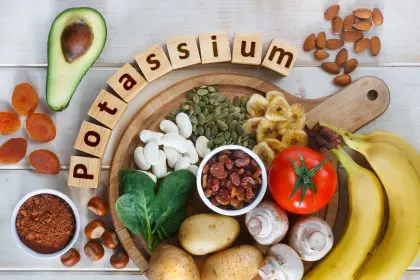The humble plum might not receive the same attention as trendy superfoods, but this juicy stone fruit deserves a prominent place in your dietary rotation. Available in numerous varieties ranging from deep purple to bright yellow and red, plums deliver an impressive array of nutrients and bioactive compounds that support multiple aspects of health while adding vibrant flavor to meals and snacks.
Research continues to uncover the many ways this versatile fruit contributes to wellness beyond basic nutrition. From supporting digestive function to potentially reducing chronic disease risk, plums offer benefits that extend far beyond their modest calorie content of approximately 30 calories per fruit.
Here are seven science-backed health benefits that make plums a smart addition to your daily diet.
Digestive health superhero
Plums rank among nature’s most effective foods for digestive wellness, providing both soluble and insoluble fiber that work together to maintain intestinal health. A single plum contains about 1 gram of fiber, while prunes (dried plums) offer significantly more at 2-3 grams per fruit.
The soluble fiber in plums forms a gel-like substance during digestion that helps regulate blood sugar absorption while feeding beneficial gut bacteria. Meanwhile, the insoluble fiber adds bulk to waste, promoting regularity and preventing constipation.
The natural sorbitol content in plums also contributes to their mild laxative effect. This sugar alcohol draws water into the digestive tract, softening stool and stimulating bowel movements. For those experiencing occasional constipation, consuming plums or prunes often provides gentle relief without the harsh effects of commercial laxatives.
The digestive benefits extend to the gut microbiome as well. Research indicates that the prebiotic compounds in plums help nourish beneficial bacteria in the large intestine, potentially improving the gut environment and enhancing immune function through this gut-brain axis connection.
Bone strength supporter
One particularly fascinating aspect of plum nutrition revolves around bone health. Research has demonstrated that regular consumption of dried plums (prunes) may help prevent bone loss and potentially even restore bone density in certain populations.
The bone-protective effects stem from plums’ unique combination of minerals, vitamin K, and polyphenols that work synergistically to reduce bone resorption—the process where bone tissue breaks down and releases minerals into the bloodstream.
Studies focusing specifically on postmenopausal women have found that consuming 5-6 prunes daily significantly increased bone mineral density compared to control groups. This finding is particularly valuable given that postmenopausal bone loss affects approximately 200 million women worldwide.
The boron content in plums deserves special attention, as this trace mineral plays a crucial role in calcium metabolism and helps prevent osteoporosis. While many foods lack substantial boron, plums provide this essential nutrient that contributes to skeletal strength and joint health.
Antioxidant powerhouse
Plums contain an impressive array of antioxidants, particularly polyphenols that neutralize free radicals and reduce oxidative stress throughout the body. The deep purple and red varieties pack especially high concentrations of anthocyanins—the same compounds found in berries and red wine that protect cells from damage.
These antioxidants help shield the body from the cumulative effects of oxidative stress, which contributes to aging and chronic disease development. Regular consumption of antioxidant-rich foods like plums may help maintain cellular health and reduce inflammation at the molecular level.
Neochlorogenic and chlorogenic acids, two specific antioxidants abundant in plums, have demonstrated particularly strong free-radical scavenging abilities in research studies. These compounds appear to concentrate in various tissues, offering protection to multiple body systems simultaneously.
The antioxidant profile of plums remains relatively stable even after moderate cooking, making these fruits versatile for various culinary applications without significant nutrient loss. Whether eaten fresh, baked into desserts, or added to savory dishes, plums continue providing protective compounds.
Heart health ally
The cardiovascular benefits of plums stem from multiple mechanisms working together to support arterial function and healthy blood pressure. The potassium content—about 113 mg per plum—helps counterbalance sodium’s effects on blood pressure by relaxing blood vessel walls and increasing sodium excretion.
Plums also contain compounds that may help manage cholesterol levels. Studies suggest the soluble fiber and phenolic compounds in plums can bind to bile acids in the digestive system, helping remove cholesterol from the body. This process potentially contributes to improved lipid profiles with regular consumption.
The anthocyanins in darker plum varieties demonstrate anti-inflammatory effects specifically beneficial for vascular tissues. These compounds help maintain the integrity of blood vessel walls while improving their flexibility, potentially reducing strain on the cardiovascular system.
Research also indicates that plum consumption may help reduce platelet aggregation—the clumping together of platelets that can lead to blood clot formation. This natural blood-thinning effect occurs without the side effects of medication and contributes to overall cardiovascular protection.
Blood sugar balancer
Despite their sweet taste, plums rank relatively low on the glycemic index, meaning they cause a more gradual rise in blood sugar compared to many other fruits. This quality makes them appropriate for those monitoring their glucose levels or managing diabetes.
The fiber content in plums plays a critical role in this blood sugar regulation. By slowing the absorption of sugars into the bloodstream, plum fiber helps prevent rapid glucose spikes and subsequent crashes that can trigger hunger and energy fluctuations.
Certain compounds in plums may also enhance insulin sensitivity—the body’s ability to respond appropriately to insulin. Research suggests that the phenolic compounds in plums potentially help optimize cellular insulin response, though more human studies are needed to confirm this mechanism.
For those concerned about blood sugar management, consuming plums with a source of protein or healthy fat further moderates their glycemic impact. Pairing plums with nuts, yogurt, or cheese creates nutritionally balanced snacks that support stable energy levels.
Weight management supporter
Incorporating plums into a weight-conscious eating plan makes nutritional sense for several reasons. Their high water content (approximately 85%) and fiber combine to create significant satiety with minimal calories—just about 30 calories per medium fruit.
The soluble fiber in plums forms a gel-like substance during digestion that slows stomach emptying, prolonging feelings of fullness after eating. This natural appetite regulation helps prevent overconsumption at subsequent meals.
Research indicates that fruits like plums may help displace higher-calorie foods in the diet while still providing sensory satisfaction through their natural sweetness and complex flavor profile. This substitution effect potentially reduces overall caloric intake while maintaining meal enjoyment.
Some preliminary studies suggest that certain bioactive compounds in plums might influence fat metabolism and storage, though more research is needed to understand these mechanisms fully. Current evidence points to plums supporting weight management primarily through their fiber content and low energy density.
Immune system defender
The vitamin C content in plums—about 10% of the daily value per fruit—supports immune function through multiple pathways. This essential nutrient promotes the production and function of white blood cells while strengthening physical barriers against infection like skin and mucous membranes.
Beyond vitamin C, plums contain vitamin A precursors that support the immune system’s first line of defense. These compounds help maintain the integrity of mucous membranes in the respiratory and digestive tracts, preventing pathogens from gaining easy access to the body.
The zinc and copper in plums, though present in smaller amounts, contribute to immune cell development and function. These trace minerals serve as cofactors for enzymes involved in immune responses and antioxidant defense systems.
Emerging research also suggests that the phenolic compounds in plums may have direct antimicrobial properties against certain bacteria and fungi. While not a replacement for standard hygiene practices, these natural compounds potentially offer supplementary protection against common pathogens.
Integrating plums into the diet represents a simple yet effective strategy for enhancing multiple aspects of health. Whether enjoyed fresh as a portable snack, incorporated into smoothies, added to salads, or transformed into savory chutneys, this versatile fruit delivers impressive nutritional benefits in a delicious package.













